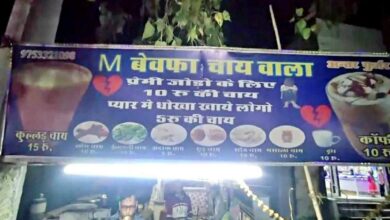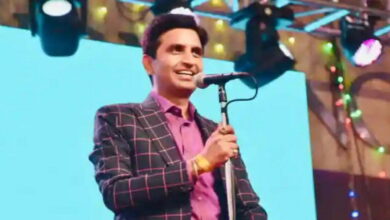Sangh expressed concern, why not pressurized?

Of late, the Rashtriya Swayamsevak Sangh has expressed concern over the three biggest problems facing the country – poverty, unemployment and inequality. Sangh’s number two functionary, Sir Karyavah Dattatreya Hosabale, said about poverty in a program of Swadeshi Jagran Manch that ‘poverty in the country is standing in front of us like a monster and it is very important that we end this monster’. Regarding inequality, he said that 20 percent of the country’s national income is with one percent of the people, while half of the country’s population i.e. 50 percent of the population has only 13 percent of the national income. He said that it is a matter of shame that 20 crore people in the country are below poverty line and 23 crore people are earning less than Rs 375 per day. Regarding unemployment, Hosbale said, “There are 40 million unemployed people in India, of which 22 million are in urban areas and 18 million are in rural areas.”
Concerns have been raised from time to time about some policies of the government on behalf of the subsidiaries of the Rashtriya Swayamsevak Sangh. Questions are raised on policy issues by Swadeshi Jagran Manch, Bharatiya Kisan Sangh or Bharatiya Mazdoor Sangh. But this is the first time in recent times that the number two functionary of the union has directly raised the broader issue of poverty, unemployment and inequality that has arisen as a result of the policies of the central government. This is very important in this sense because it is not a criticism of a single policy or a suggestion in a policy matter, but a matter of wider concern, which is present before the country today. India was not free from poverty, unemployment and inequality even earlier, but due to the kind of experiments done with economic policies in the last eight years, the country has reached such a situation. There was a trend of decreasing poverty in India for almost a decade, which has now reversed and poverty has started increasing. This happened because of the glitches in the government policies.
Surprisingly, the Rashtriya Swayamsevak Sangh kept silent or almost tacitly agreed when the government was experimenting with economic policies without any hesitation. First, there was no response from the union at the time of demonetisation, then the hastily implemented GST and then the economic package implemented during the Corona epidemic. These are the three basic issues, due to which the entire system of the country has deteriorated. Small and medium companies and self-employed people were the biggest hit due to demonetisation and GST system. His business stopped. His struggle was going on due to the policy disturbances of the government that the corona epidemic started. In the Corona epidemic, the government imposed the first lockdown without thinking and after that, no group was given cash help in the economic package released after that. The entire economic package of the government was going to make provision for loans. The result of this has been that the MSME sector, which is facing the impact of demonetisation and GST, could not bear the brunt of Corona and this sector, which employs the maximum number of people in the country, is dying.
Meanwhile, government policies that increased economic inequality continued. Instead of promoting small and medium companies, the government continued to work with the stated goal of creating big corporates. All the big contracts are being awarded to select companies. Central government undertakings are being sold to select companies at throwaway prices. Through the newly created Bankruptcy Code, companies are being given freedom to go bankrupt and not repay the loans of banks. On one hand the companies are not repaying the loans of the banks and after defaulting they are getting back the same companies at throwaway prices. In this way, the banks are incurring double losses and the assets of selected companies are increasing exponentially. In order to artificially keep the rupee strong, the Reserve Bank is throwing dollars out of the reserve reserves and on the other hand, the stock market has been kept high by buying from government undertakings. For this reason, the shares of select companies have increased tremendously and income inequality has increased.
Sangh’s number two functionary Dattatreya Hosabale said that the government has taken several steps in the last few years to deal with these challenges. But the reality is that the government has not taken any step. The government can control inflation by reducing oil prices, but it has not. If the government’s treasury is full, it can control the unemployment rate by recruiting in large numbers, but in the name of recruitment, it is reinstating four years old Agniveer. The government can ensure food security by increasing the procurement of food grains, but the government procurement of food grains is continuously decreasing. The government is giving five kilograms of food grains to 80 crore people. But it is not a remedy, rather it is a mirror showing the real picture of poverty, unemployment and inequality. This shows the real situation of the country.
The government is not actually making any institutional or policy effort to reduce poverty, prevent unemployment and remove inequality. On the contrary, the government has stopped the process of assessing poverty and unemployment. In India, poverty is measured on the basis of consumer spending. Based on the recommendations of the Suresh Tendulkar Committee, those who spend less than Rs 29 per day in cities and Rs 22 in villages are considered poor. It is assessed on the basis of Consumption Expenditure Survey (CES), but since 2011, there is no update with the government. The government put on hold the CES figures for 2017-18. Data from the Period Labor Force Survey (PLFS 2017-18) shows that consumer spending has come down for the first time in four decades. This is a direct sign of increasing poverty. But the government also put this figure in cold storage. By 2011, the number of poor in India had come down to 130 million, which increased to more than seven and a half million by 2019. That is, the figure reached close to 21 crores. It would have increased further after Corona. The top 10 per cent of the country’s total national income accounts for more than 57 per cent of the income, while the rest 90 per cent of the people are included in 43 per cent of the national income.
The reality is that the government is not collecting any data showing poverty, unemployment and inequality in the country and is not even paying attention to the figures coming from here and there. Think, for the first time in the last 150 years, it is happening that census is not being done on time. The question is that when the government does not have the data of population and its socio-economic status, then how will it formulate policies and how will it try to remove poverty, unemployment or inequality? The Sangh has fulfilled its responsibility by giving a statement in the concern of the thinking that is being created among the people of the country regarding these three basic problems, resentment is being created and questions are being raised. If he is really worried, then he should put pressure on the government to solve them one by one, otherwise the government will not pay any attention to such statements.






